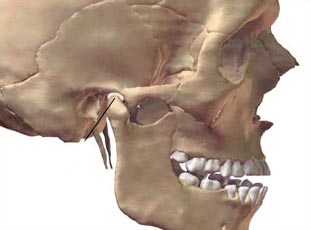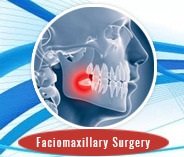TMJ disorders cause tenderness and pain in the Temporomandibular Joint (TMJ) //? the joint on each side of your head in front of your ears, where your lower jawbone meets your skull. This joint allows you to talk, chew and yawn.
TMJ disorders can be caused by many different types of problems //? including temporomandibular joint arthritis, jaw injury, or muscle fatigue from clenching or grinding your teeth.

In most cases, the pain and discomfort associated with TMJ disorders can be alleviated with self-managed care or nonsurgical treatments. Severe TMJ disorders may need to be treated with dental or surgical interventions.
Symptoms of TMJ Disorders
Signs and symptoms of jaw problems may include:
- Pain or tenderness of your jaw
- Aching pain in and around your ear
- Difficulty chewing or discomfort while chewing
- Aching facial pain
- Locking of the joint, making it difficult to open or close your mouth
- Headache
- Uncomfortable bite
- An uneven bite, because one or more teeth are making premature contact
TMJ disorders can also cause a clicking sound or grating sensation when you open your mouth or chew. But if there’s no pain or limitation of movement associated with your jaw clicking, you probably don’t have a TMJ disorder.
TMJ Disorder Treatment
In some cases, the symptoms of TMJ disorders may go away without treatment. If your symptoms persist, your doctor may recommend various TMJ treatment options like medications or a bite guard to help keep you from grinding your teeth at night. In very rare cases, surgery may be required to repair or replace the joint.
1. Medications
- Painkillers: If over-the-counter pain medications aren’t enough to relieve TMJ pain, your doctor or dentist may prescribe stronger painkillers.
- Tricyclic Antidepressants: Antidepressants, such as amitriptyline or nortriptyline, taken at bedtime help relieve TMJ pain in some people.
- Muscle relaxants: These types of drugs are sometimes used for a few days or weeks to help relieve pain caused by TMJ disorders.
- Corticosteroid drugs: For significant pain and joint inflammation, corticosteroid drugs injected into the joint space may provide TMJ pain relief.
- Botulinum toxin: Injecting botulinum toxin (Botox, others) into the jaw muscles used for chewing may relieve pain associated with TMJ disorders.
2. Therapies
- Bite guard: If you grind your teeth in your sleep, you may benefit from wearing a soft or firm device inserted over your teeth. This bite guard prevents your teeth from meshing together. Bite guards sometimes aggravate sleep apnea symptoms.
- Cognitive behavioral therapy: If your symptoms of TMJ disorder are made worse by poorly managed stress or anxiety, your doctor or dentist may refer you to a psychotherapist with experience in cognitive behavioral therapy. This approach includes interventions to help you be aware of and change behaviors, learn relaxation techniques, and manage stress.
3. Surgical or other procedures
- Corrective dental treatment: Your dentist may improve your bite by balancing the biting surfaces of your teeth, replacing missing teeth, or replacing needed fillings or crowns. However, these types of treatments sometimes worsen TMJ pain.
- Arthrocentesis: This procedure involves insertion of a needle into the joint so that fluid can be irrigated through the joint to remove debris and inflammatory byproducts.
- Surgery: As a last resort, your doctor or dentist may suggest surgery to repair or replace the joint.















